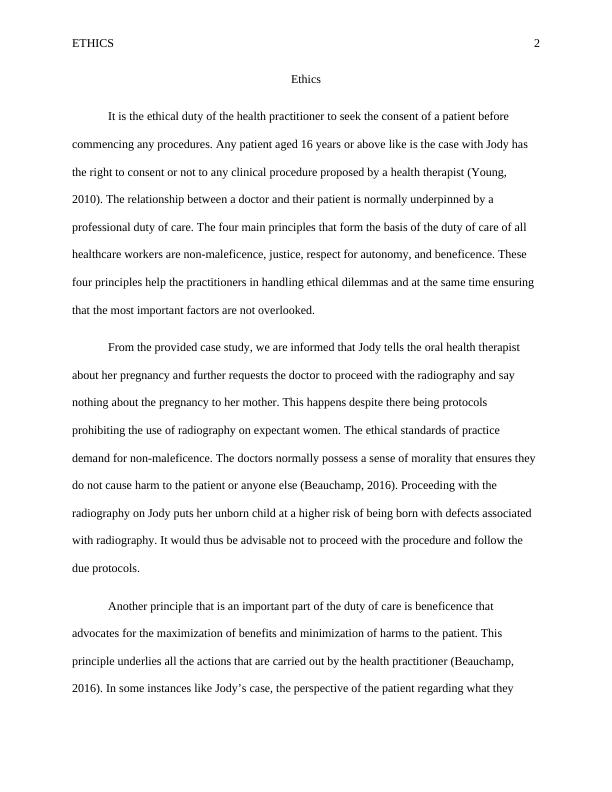Ethics in Healthcare: Balancing Autonomy, Beneficence, Non-Maleficence, and Justice
4 Pages797 Words232 Views
Added on 2023-06-11
About This Document
This article discusses the ethical principles of healthcare workers, including autonomy, beneficence, non-maleficence, and justice, and how they apply to a case study involving radiography on a pregnant patient.
Ethics in Healthcare: Balancing Autonomy, Beneficence, Non-Maleficence, and Justice
Added on 2023-06-11
ShareRelated Documents
End of preview
Want to access all the pages? Upload your documents or become a member.
Ethical Practice in Healthcare: Principles of Autonomy, Non-Maleficence, Beneficence, and Justice
|4
|785
|256
Human Ethics in Medical Practice: Autonomy, Justice, and Non-Maleficence
|4
|716
|200
Legal and Ethical Issues in Healthcare
|8
|2955
|161
Beauchamp and Childress Assignment
|10
|3751
|336
Ethical and Legal Considerations in Nursing: A Case Study
|7
|2256
|155
Limits & Importance of Patient Autonomy
|4
|979
|290


